News in Hindi
सुभाग्य आपको भी बुला रहा हैं.. 31st अगस्त अभिषेक अंतिम तिथि...
श्री बाहुबली का नह्वन कराने जुड़ गया सारा देश.. फिर नीर क्षीर की धाराओं में भीग रहे गोमटेश!
 Source: © Facebook
Source: © Facebook
जैन धर्मं का अनूठा ग्रन्थ श्री-भूवलय जो आचार्य कुमुदेन्दु द्वारा 1400 वर्ष पहले लिखा गया हैं, जिसे शब्दों में नहीं बल्कि अंको में लिखा गया हैं.. जैसे प्रोग्रामिंग लैंग्वेज में आजकल मशीन लैंग्वेज और कंप्यूटर कोडिंग की जाती हैं ऐसे.. जिसको 718 भाषा में डिकोड किया जा सकता हैं.. ग्रन्थ बहुत गहन हैं जिसको सही से आज तक डिकोड नहीं जा जा सका हैं इस पर आचार्य श्री विशुद्धसागर जी के सनिध्य में कुंद कुंद ज्ञानपीठ इन्दोर द्वारा एक पहल 🙂
Siribhuvalaya workshop 2017 happened with the blessings of Acharya Sri Vishuddasagara Maharaj & guidance of Sri Lakshmisena Bhattrakaru in Indore. Siribhuvalaya is literature work written in 9th century by Acharya Sri Kumudendu muni in numerical coding, just like machine language used in computers & it can be decoded into 718 languages, its a unique of its kind. The information covers past, present & future modern science, technology, medicine, Jain philosophy & many more. #SiriBhoovalaya #SiriBhuvalaya #AcharyaVishuddhasagar #AcharyaKumudendu
Wiki @ https://en.wikipedia.org/wiki/Siribhoovalaya
Website @ http://siri-bhoovalaya.org/introduction-to-siribhoovalaya/
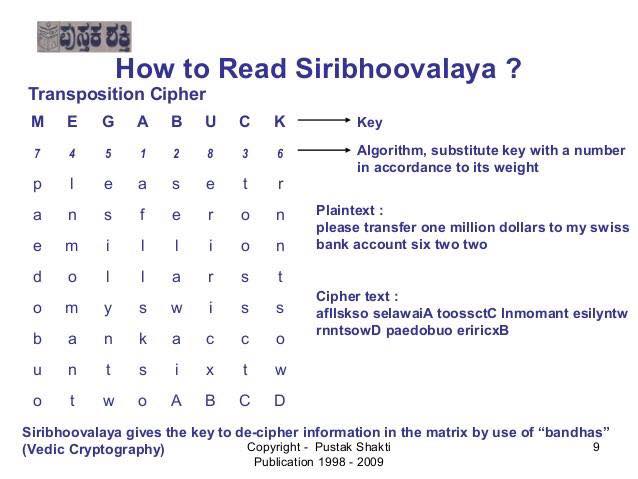 Source: © Facebook
Source: © Facebook
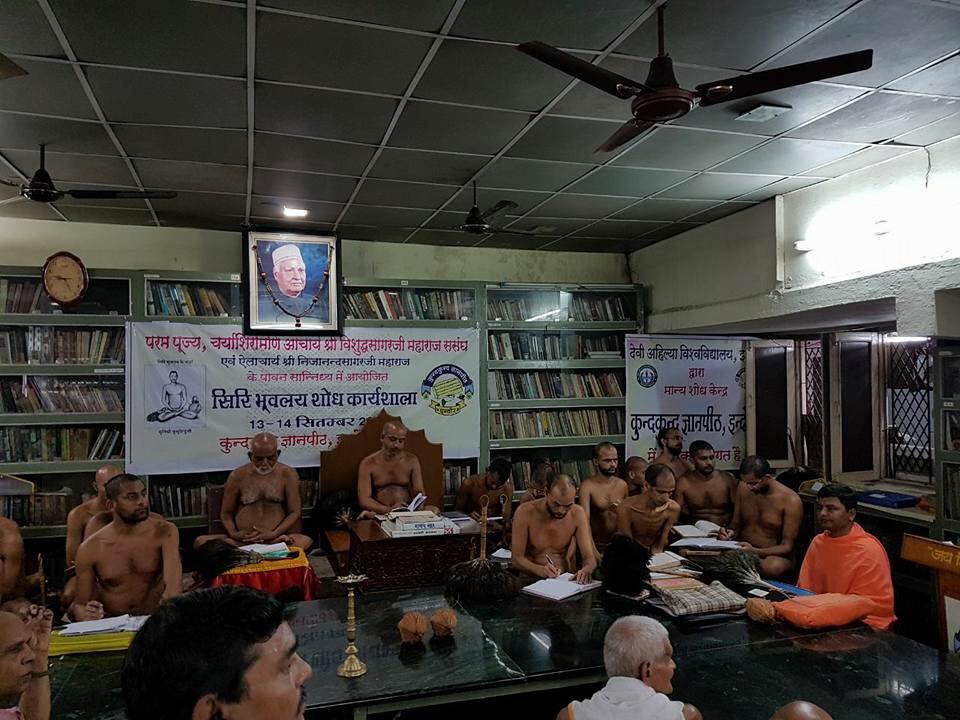 Source: © Facebook
Source: © Facebook
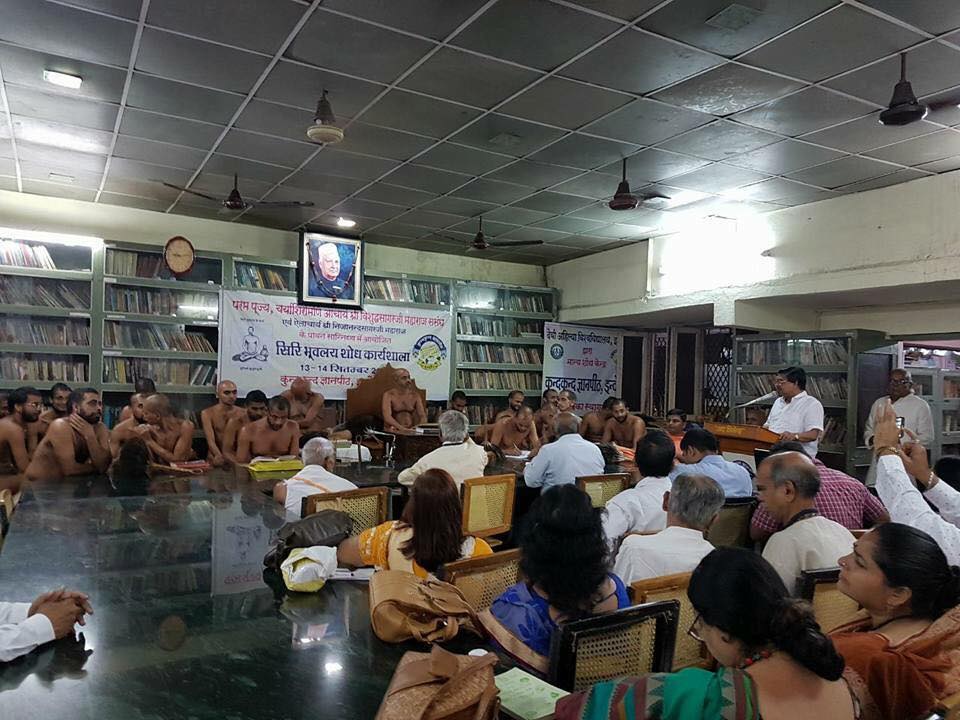 Source: © Facebook
Source: © Facebook
 Source: © Facebook
Source: © Facebook
एक सज्जन आचार्य महाराज के पास आये और हाथ जोड़कर नमस्कार की मुद्रा में निवेदन करने लगे - मेरे हाथ की अंगुली अभी कुछ दिन पहले कट गयी थी - क्या मैं आहार दे सकता हूँ। आचार्य महाराज ने उसका मन्तव्य समझ लिया और कहा - क्या आपने पहले भी आहार दिये हैं। उन्होंने नीचे गर्दन झुकाते हुये कहा - नहीं। इससे हमें यह शिक्षा मिलती है कि भैया जब तक हाथ, पैर, शरीर ठीक है, तब तक कुछ सत्कार्य कर लो वरना बाद में पछतावा ही हाथ लगेगा।
#जीवन का खेत एकदम खुला पड़ा है रखवाला कोई नहीं, विषय-कषाय रूपी चिड़ियों ने बहुत कुछ चुग लिया है, चेत सको तो अभी भी चेत जाओ जिससे जो शेष बचा है उसे सुरक्षित बचाया जा सके
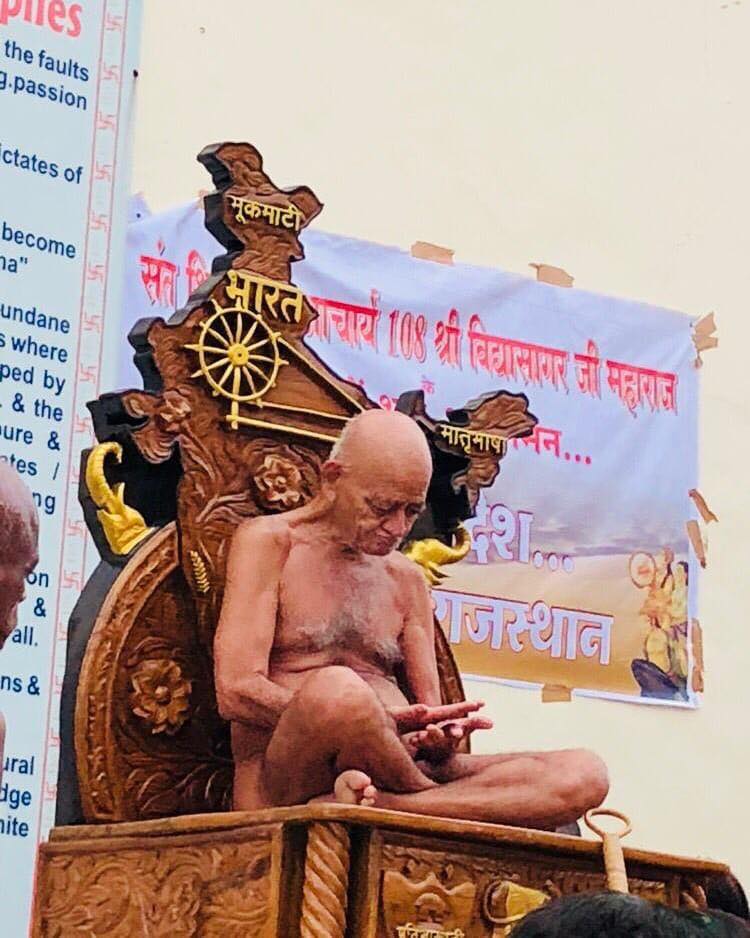 Source: © Facebook
Source: © Facebook
😍🙂
 Source: © Facebook
Source: © Facebook
Four kinds of Bhavanas/ contemplation
Bhavana means reflection or contemplation. We are always thinking of something which may be near us or could even be as far away as the other end of the world. This thinking may cause happiness, sorrow, anger, greed, jealousy, or egoism, etc. And depending upon how we react, we attract different types of karmas to our souls. No prudent person would like to attract bad karma and at certain stages any karma at all. But it is not as easy as turning off a switch. So to minimize the bondage of karmas, the Jina have taught us about Bhavanas, which can be easily practiced by the householders.
1) Maitri Bhavana (Thinking of being a Friend)
2) Pramoda Bhavana (Thinking of Appreciation)
3) Karuna Bhavana (Thinking of Compassion)
4) Madhyastha Bhavana (Thinking to stay neutral or uninvolved)
Let us understand how these bhavanas play important roles in our lives, how they can keep us away from bad karmas, and ultimately how they can improve our overall chances to uplift our souls.
1. Maitri Bhavana (Thinking of the Friendship): Lord Mahävira said, "We must be friend to all living beings." The feeling of friendship brings love and respect to others. It also initiates a feeling of brotherhood among all and in turn leaves no room for the harm, deceit or quarrelsomeness with anybody. If we contemplate on Maitri Bhavana (Thinking of the Friendship), our thoughts, words, and actions will not be harsh, and we will not hurt anybody. On the contrary, we will support and protect everybody. Friendship will lead us to be tolerant, forgiving, and caring for one another. Therefore, if we develop a friendship with all living beings, we will avoid bad karma.
2. Pramoda Bhavana (Thinking of the Appreciation): In this Bhavana, we admire the success of others like our friends, spiritual leaders, and the Arihants (Who conquered the Karmas) etc. One of the most destructive forces in our lives is jealousy. However, friendship combined with the admiration, destroys jealousy. As jealousy subsides, negative impulses are turned into positive ones, and in due time, we will be at peace.
3. Karuna Bhavana (Thinking of the Compassion): Instead of succeeding, many of our friends may be getting into trouble for the things that can be avoided and should not be done. Even some of those who are successful may be accumulating vices such as greed and ego. They are not on the right path. They may be weak, helpless, and in distress. At a time like this, we should contemplate on the Karuna Bhavana and show compassion for them instead of disgust or hate. We should show them the right path with the patience, tolerance, and forgiveness and offer them the needed support. This way we can avoid accumulating bad karma for us as well as for them.
4. Madhyastha Bhavana (Think of staying neutral or uninvolved): The life appears to be nothing but involvement. Sometimes the situation works out favourably and sometimes it does not. So instead of getting disappointed, angry, or more involved, we should contemplate on Madhyastha Bhavana which leads to the feeling that "I did my best to resolve the situation." This leads our mind to decide that if someone does not want to understand, then leave that person alone without getting further involved. We should simply hope that one of these days, that person may understand things and change. By observing Madhyastha Bhavana, we remain in equanimity, instead of provoking turmoil in our minds. When our mind stays neutral and uninvolved, then the karma stays away.
In short, we can avoid the influx of bad karmas and live peacefully in this worldly life by developing friendships with all living beings, admiring their success, holding their hands when they are in the distress, and leaving them alone at the times when they do not understand what is right or wrong. So until it becomes the natural way of life to observe the above Four kinds of Bhavanas, one should contemplate on them as many times as needed. If there is a goal, then there is an achievement!
The Concept of Prayer (Bhakti) in Jainism #worthyRead
Since Jainism firmly believes in the doctrine of karma and puts sole reliance on the development of the spiritual force by one's own personal efforts, and further exhorts its followers to develop Asarana-Bhavana (none other can refuge or save us), the question that naturally arises is, what is the place of prayers in Jainism? Since the Jains do not believe in God as a controller or in the existence of any outside Divinity controlling our fate, any idea of prayer would be irrelevant to them for two main reasons.
1) The soul which has been emancipated and became Siddha (liberated soul) has no desires or motivations left. Its character is purely that of a knower and a seer. If, prayers could please Siddha (liberated soul) then some prayers could also displease Siddha. In the same sense if Siddha could bestow favours or frowns then attributing such human frailties to a Siddha (liberated soul) is to deny soul's liberation.
2) Once we accept the doctrine of karma, all results must be sought in that doctrine and therefore unless the prayers are adjusted in the karma doctrine, they remain totally non-productive.
However, it would be totally wrong to say that prayers have no place in Jain philosophy. Jains do not consider prayers as a means of seeking favours from Siddha or even Arihantas. True Jain prayers are nothing but the appreciation and adoration of the virtues possessed by the liberated soul or Arihantas and the expression of ardent desire to achieve these virtues in one's own actual life. It is for this reason that Jain scriptures have actually enumerated the virtues of different categories of souls such as Arihanta, Siddha, Acharya, Upaddhyaya and Sadhu.
It is basic to the Jain belief that the Tirthankaras (prophets) and their teachings are only to point out to us the way to achieve liberation. But how to acquire liberation and how to put these teachings into the practice, is entirely left to us. We achieve only to the extent to which we exert. However, the path shown by those who have achieved liberation must be studied with utmost respect and sincerity, because it is the proven path, which they have actually taken during their lives and have obtained the results. We feel very thankful to these great souls for providing us such useful guidance. Therefore, in prayer we express our gratitude, extol and enumerate their virtues and wish that such virtues might also develop in our life. Such prayers constantly remind us what made them great and in turn help us to develope such virtues in us. In Jain philosophy, this is the process of prayers.
It is interesting to note that the most outstanding Jain prayer, known as Navakara Mantra, is not refered to any individual personal or sect and asks for nothing in return. It does nothing more than offering sincere veneration to those souls, which are already liberated or are on the path of liberation.
Namo Arihantanam -- I bow down to all Arihantas.
Namo Siddhanam -- I bow down to all Siddhas.
Namo Ayariyanam -- I bow down to all Acharyas.
Namo Uvajjhayanam -- I bow down to all Upadhyayas.
Namo Loe Savvasahunam -- I bow down to all the Sadhus.
Arihantas are those blessed souls who have successfully shed off all the ghati karmas, which blur the potency of the soul. Siddhas are those souls who have achieved the final liberation and have attained a bodyless state of pure bliss. Acharyas are those merciful souls who teach us about the path to salvation and Upadhyayas and Sadhus are those saints who are themselves on the path to salvation and are striving for the liberation.
These five are called Pancha-Paramesthi (we will talk about this in detail in future posts), five types of great souls, those who have been liberated and those who are on the path of liberation. A Jain bows down to them all, not necessarily because they have followed or are following a particular type of religion but because they have already attained what was worth attaining or because they are striving to attain what is worth attaining.
Thus, prayers or bhakti are differently perceived by the Jains but they do occupy a prominent place in Jain thinking.
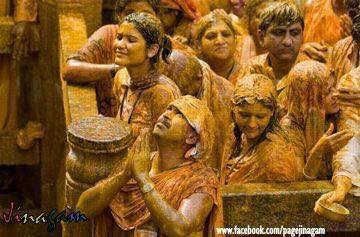 Source: © Facebook
Source: © Facebook
भारत के प्रसिद्ध जैन तीर्थ क्षेत्रों में से एक सुंदर जगह है " वारंग " जो कि श्रवणबेलगोला से 360 किलोमीटर दूर है यहाँ तालाब के बीचों बीच बहुत ही सुंदर चतुर्मुख मंदिर है । मंदिर तक नाव द्वारा आसानी से पहुँचा जा सकता है। यह मंदिर प्राचीन तो है ही साथ ही नाव की सवारी का भी अपना मज़ा है।
 Source: © Facebook
Source: © Facebook
आप कैसे जैन हैं? अगर आप 13 ya 20 में से एक पंथ के blind follower to 1 चुने.. ओर अगर धर्म समझते पंथवाद में कट्टर नहीं तो 2 चुने (जो जितना कट्टर पंथवादी होगा उसमें क़षाय/ग़ुस्सा/चिड़चिड़ापन उतनी अधिक होगा)
